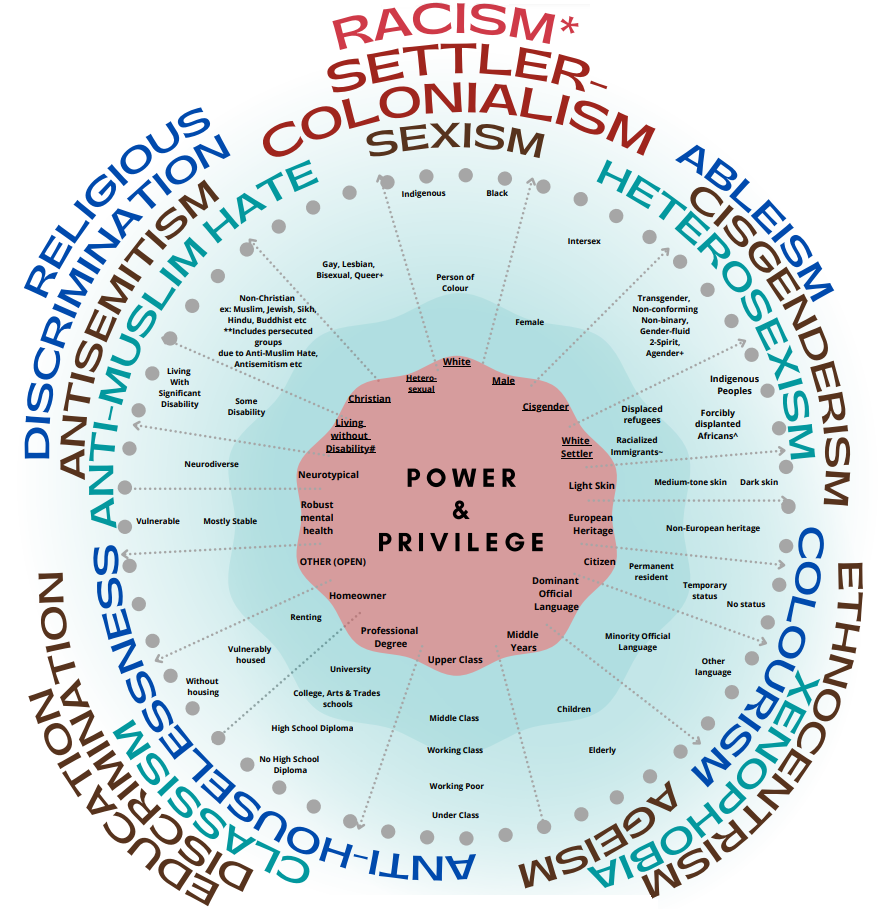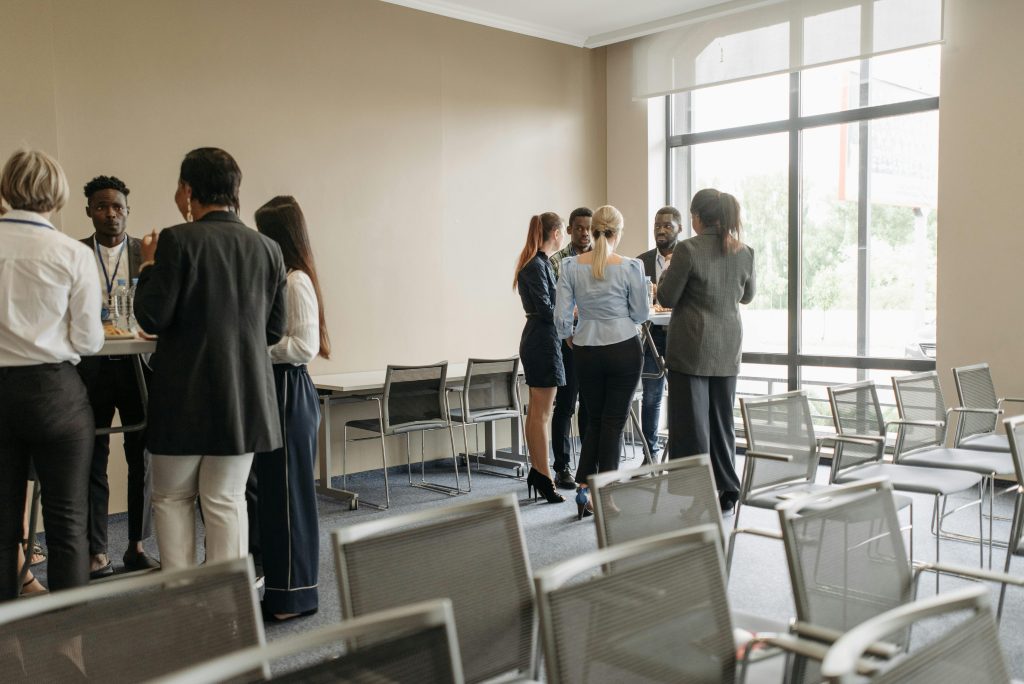Social stratification
Image by Pavel Danilyuk from Pexels.
Social stratification is when different groups in society are given different values. Depending on the privilege we have, we tend to have an understanding and are usually assigned more value in society. For example, cisgendered, able-bodied men have high value in society, than a 2SLGBTQIA+ person. When you look around the post-secondary campus, people are socially stratified based on many different aspects of their society. In this section, we will examine what identity markers can socially stratify groups.
Pause and reflect
Look at the Power and Privilege wheel image below by Dr. Amy Tan and examine each intersection of identity to see where your identity places you.
Reflect on the following questions:
- Are the majority of your identity markers closer to the centre or further from the centre?
- What does it mean when you’re closer to the centre and further away from the centre?
- Think of the people in management or your supervisors. Where would you place their identities in the circle?
Note: Click the image below to open a larger version of the “Wheel of Power and Privilege” diagram in a new tab for easier viewing.

Instructions: Below is a collapsible accordion with 1 section. Select the “>” icon to expand the section to reveal a detailed image description for the Wheel of Power and Privilege.
If you’re using keyboard navigation, use the Tab, Up, or Down arrow keys to move between sections, and press Spacebar to expand or collapse them.
Dr. Amy Tan (2021) created this power and privilege wheel and asks people to reflect on the following questions:
- When you picture a “standard” person in Canadian society, who do you see in your head? How do you picture they will act/behave?
- Who is my organization (customers, employees, marketing audience, etc.) built around? Why and how?
- How are policies used to define what is expected behaviour? Do these policies give a certain group unearned advantage?
- Who or in what areas do people need to ask for accommodation to be able to function as fully as they can in a given setting? Why?
- Which identities can a person choose to not disclose if they don’t want to in a given setting? Which ones can’t be hidden?
- Why are Christian holidays like Christmas and Easter statutory holidays in Canada, but not other religions major holidays?
- How can systems that uphold unearned advantages to only certain group(s) be disrupted by those who have privilege?
- How can different equity-seeking groups work in solidarity with each other given that every anti-oppression fight is inter-related?
Some researchers and scholars prefer to use term “systemically excluded” or “systemically disadvantaged” or “equity-deserving groups” over “equity-seeking groups” which underscores that these groups inherently merit equity rather than having to pursue it.


